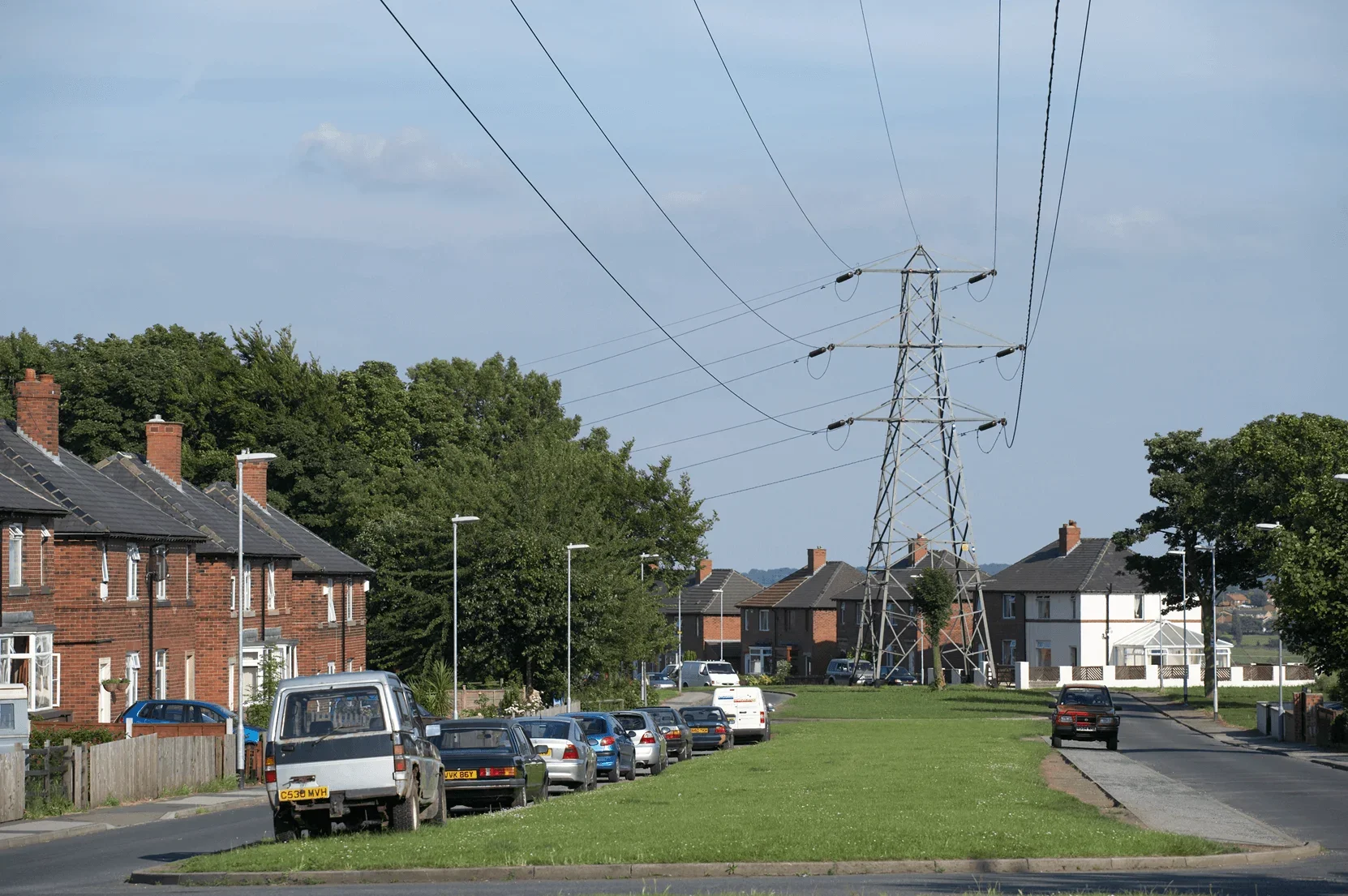BUSINESS ENERGY
A complete guide to business energy for restaurants
Read time: 3 minutes
By Les Roberts, Business Energy Expert
8th January, 2026
Busy restaurants can use a lot of energy. When you consider the lighting and heating that are essential for creating an ambience, and the gas and electricity that are essential for cooking, the costs can soon add up.
That’s why it’s so important to make sure you’re on the best deal, so you can keep your costs as low as possible.
What is the average business electricity bill in 2026?
The amount you pay for business electricity depends on your business’s location and your energy supplier, but these average amounts will give you a rough guide to what you can expect to pay:
| Business size | Average annual usage (kWh) | Average price (per kWh | Standing charge (daily) | Average annual price |
| Micro business | 5,000 - 15,000 | 25.8p | 58.5p | £2,794 (based on annual usage of 10,000 kWh) |
| Small business | 15,000 - 25,000 | 26.0p | 70.0p | £5,456 (based on annual usage of 20,000 kWh) |
| Medium business | 25,000 - 50,000 | 26.3p | 142.4p | £11,040 (based on annual usage of 40,00 kWh) |
Note: Prices are correct as of January 2026. Rates and bill size may vary according to your meter type and business location. The prices you’re quoted may be different from the averages shown. The figures shown are the average unit rates and standing charges quoted by Bionic per business size from January 1 to January 7, 2026.
What is the average business gas bill in 2026?
As a restaurant owner, gas is likely to be important to the success of your business. The amount you pay for business gas depends on your business’s location and your energy supplier, but these average amounts will give you a rough guide to what you can expect to pay:
| Business size | Average annual usage (kWh) | Average price (per kWh) | Standing charge (daily) | Average annual price |
| Micro business | 5,000 - 15,000 | 7.1p | 38.4p | £850 (based on annual usage of 10,000 kWh) |
| Small busines | 15,000 - 30,000 | 6.6p | 45.8p | £1,652 (based on annual usage of 22,500 kWh) |
| Medium business | 30,000 - 65,000 | 6.6p | 48.5p | £3,312 (based on annual usage of 47,500 kWh) |
Note: Prices are correct as of January 2026. Rates and bill size may vary according to your meter type and business location. The prices you’re quoted may be different from the averages shown. The figures shown are the average unit rates and standing charges quoted by Bionic per business size from January 1 to January 7, 2026.
How are your restaurant's energy rates calculated?
The amount you pay for the gas and electricity needed to run your restaurant can vary depending on several things, including:
- Your business’s credit rating - if suppliers think there’s a credit risk with your business, they may not offer you the most competitive rates
- The size of your business
- Your location - this can affect how much it costs suppliers to physically send energy to your premises
- Your business type - you might pay less if you’re a sole trader or a limited company, for example
- Your business sector
- How much energy your business uses each year
When you get your business energy bills, most of the costs will be based on the amount of energy your restaurant has used. These are the two main costs to look out for on your bills:
- Unit rate: The price you pay per unit (kilowatt-hour or kWh) of energy you use. This varies depending on your supplier and tariff.
- Standing charge: A daily fee that covers the cost of supplying energy to your business, regardless of how much energy you use.
These costs will also usually be included in the rates you pay:
- Wholesale costs are the price your supplier pays for the gas and electricity they provide to you. These costs fluctuate with market conditions, but if you’re on a fixed contract, your rate will stay the same throughout your agreement.
- Network costs are fees your supplier pays to use the transmission and distribution networks that deliver energy from power stations to your business.
- Environmental costs are contributions suppliers are required to make to government-mandated environmental programs, aimed at promoting sustainability and reducing carbon emissions.
- Operating costs are the expenses your supplier incurs to manage your account and ensure it runs smoothly.
- Climate Change Levy (CCL) is a tax on the energy your business uses, designed to encourage energy efficiency and reduce carbon emissions. Businesses using less than 33 kWh of electricity or 145 kWh of gas daily are exempt.
- VAT is a tax applied to goods and services. Depending on your energy usage, you’ll either pay the standard 20% rate or a reduced rate.

How to make your restaurant more energy efficient
There are lots of ways to improve energy efficiency at your restaurant and bring your business energy bills down.
Make sure you keep fridge doors closed whenever possible, and check that the seals on your fridges and cold rooms are intact. Defrost and clean your fridges regularly, and keep the condensers and evaporators clean. When you’re looking to buy a new refrigerator, check the energy rating - AA++ rated units are the cheapest to run.
A third of your energy cost is typically spent on heating and hot water, so it’s worth insulating your hot water pipes to make sure you’re not losing any heat. Check your water temperature is at 60C, as this keeps water hot and kills bacteria. Fix any leaking taps as quickly as possible, and consider swapping for spray water taps, as these use less water than conventional taps.
When it comes to heating and ventilating your restaurant, it’s important to get your systems serviced regularly to make sure they’re running as efficiently as possible. Consider turning your thermostats down to a comfortable level - you rarely need to use air conditioning below 24C. Switch off your kitchen hoods when they’re not needed, and match your heating timer to the times when the rooms are being used.
Don’t forget about lighting - simply replacing your traditional light bulbs with LED ones could reduce the electricity you use for lighting by as much as 80%. Encourage your staff to switch off lights when they’re not needed - installing movement sensors, time switches and daylight sensors will also help with this.
Can you save money by switching energy suppliers?
Yes, switching business energy suppliers before your contract ends is one of the most effective ways to reduce costs. By comparing tariffs and exploring your options early, you can secure a highly competitive deal for your business.
Energy prices typically increase over time, meaning staying with your current supplier's rates is unlikely to result in savings. Fixing your rates now could lower your energy bills by up to a third when compared to the elevated costs of out-of-contract rates. Taking prompt action and comparing quotes is a prudent strategy to manage your energy expenses effectively.
How to switch business energy suppliers
Switching business electricity and gas suppliers is straightforward and hassle-free with MoneySuperMarket and Bionic. Instead of spending valuable time comparing deals independently, our team will handle the process for you.
Start a business energy comparison by clicking the "Compare tariffs today" button on this page, or go to our main business energy comparison page.
Is it time to compare business energy quotes and switch?
Take the hassle out of sorting your next energy deal. We compare from a panel of suppliers. You choose the rates that are right for your business.
By clicking ‘COMPARE TODAYS RATES’ you agree for us to search your current energy supplier and usage though industry held data. Enter manually
Our experts share essential knowledge on business energy
All related guides
View all energy guides
- A complete guide to business energy for offices
- A complete guide to business energy for restaurants
- A complete guide to business energy for shops
- Average business energy consumption - How much does your business use?
- How to get a business energy audit to save money and boost efficiency
- A complete guide to business energy bills
- Business energy brokers – everything you need to know
- What are no standing charge business energy tariffs?
- Business energy efficiency: how to save energy at your business
- Change of Tenancy - Moving business premises and your energy contract
- Commercial property landlord energy advice
- Energy performance certificate for business
- A complete guide to half hourly electricity meters
- How does the energy market affect the cost of your energy bills?
- How switching to energy efficient lighting can save your business money
- How to pay your business energy bills to save money and avoid late fees
- How your business credit score affects your energy deals
- Compare large and industrial business energy prices
- Prepayment meters for business: The complete 2025 guide for SMEs
- What are renewable energy certificates and REGOs for small businesses?
- Renewable Energy for Business
- Business Smart Meters: Your Guide to Savings, Installation, and Supplier Comparison
- Commercial solar panel electricity
- The nuclear RAB levy explained: what it means for your business
- A business guide to time-of-use energy tariffs
- Business energy tariffs explained
- Everything you need to know about the Smart Export Guarantee (SEG)
- Compare small business & micro business energy prices
- Compare the cheapest business energy suppliers
- What is the Climate Change Levy?
- Business energy meter installation: Your complete guide
- Multi-site meters and business energy management
- How much is VAT on business energy?
- What happens when your energy supplier goes bust?
- What is a letter of authority (LoA) for business energy?
- What is Market-wide Half-Hourly Settlement (MHHS) and how does it work?
- What is business microgeneration?
How to switch business energy suppliers with MoneySuperMarket
We can switch your business to a better energy deal in three simple steps
1
We find your details
Just enter your business address and we'll use industry data to accurately find and understand your energy usage.
2
We talk through your quotes
One of our UK-based energy experts will search our supplier panel and give you a call to talk through your quotes.
3
You choose the deal you want
With all the information to hand, you choose the deal that best suits your business and we’ll handle the switch for you.
Compare today’s business energy rates
By clicking ‘COMPARE TODAY'S RATES’ you agree for us to search your current energy supplier and usage though industry held data. Enter manually






